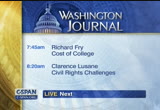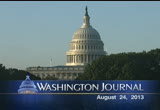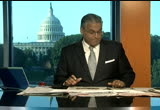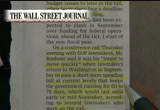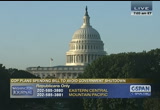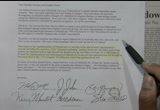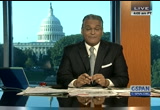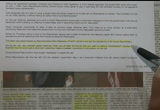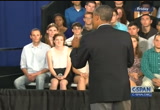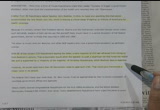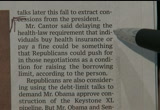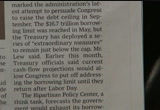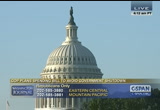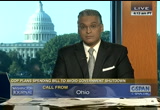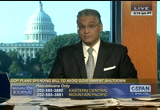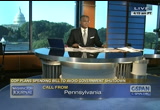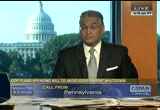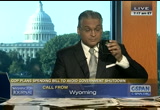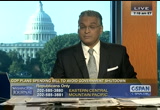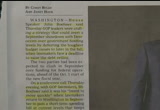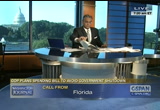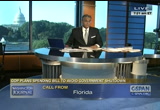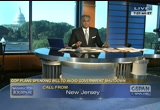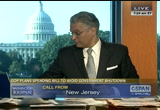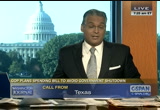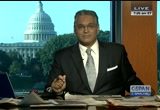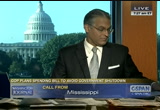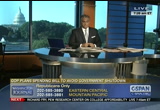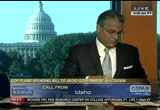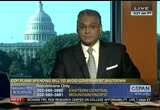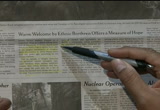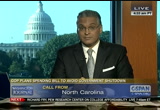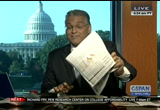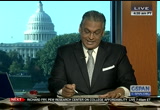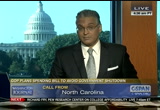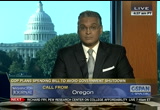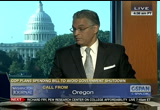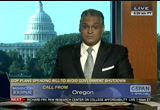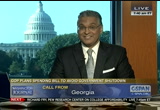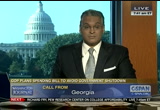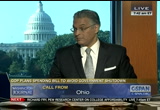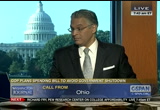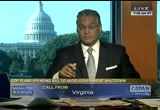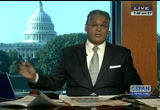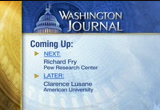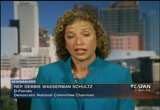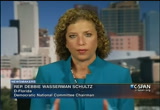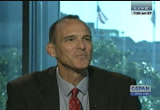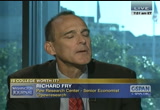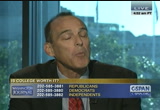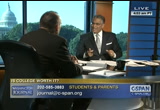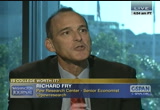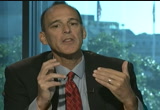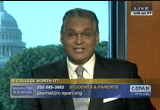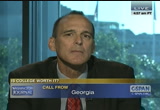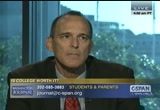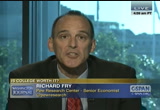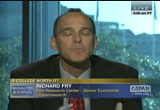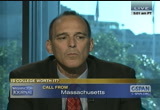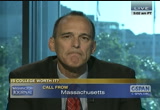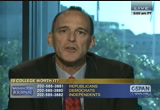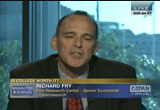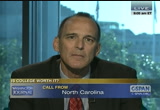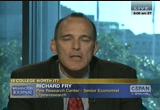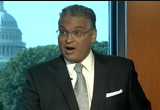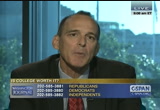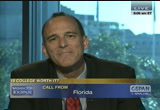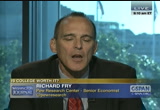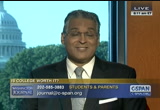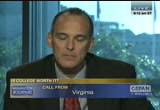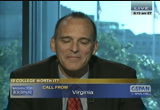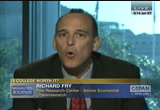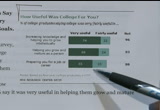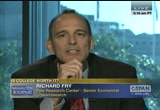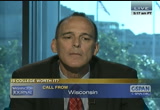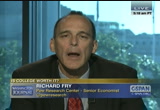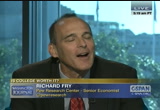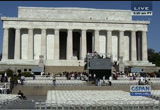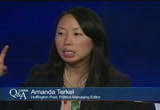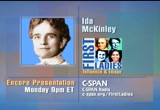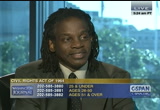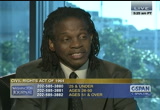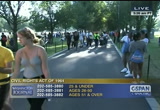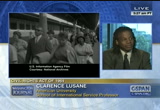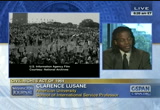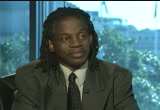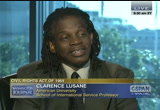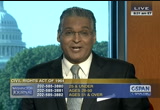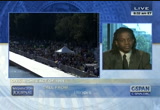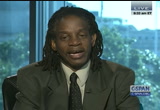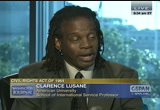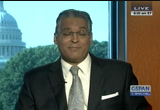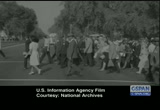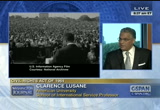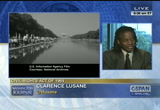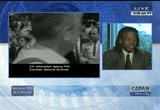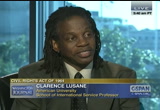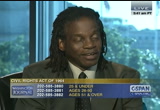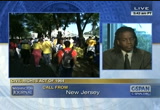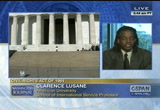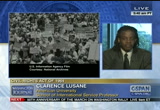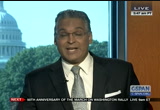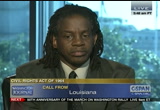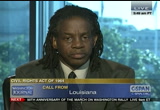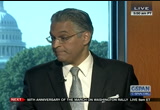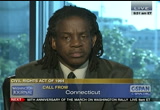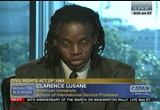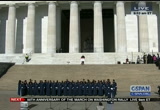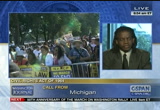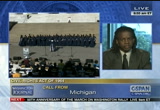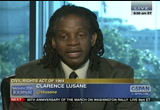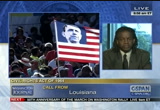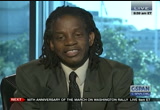tv Washington Journal CSPAN August 24, 2013 7:00am-9:01am EDT
7:00 am
march on y of the washington. we will be joined by clarence lusane. ♪ashingt"washington journal" is. host: the lincoln memorial, a key part of the march 50 years ago, a key part of the event today. commemorating the 50th anniversary of the march on washington. live coverage starts at nine on c-span three, part of american history tv. we will devote part of this program to the topic of the march, as well as the civil rights act. for the first 45 minutes we are turning to politics. john boehner, in a conference call with republican lawmakers, told a group he plans to craft a short-term bill that would fund the government, avoiding a government shutdown.
7:01 am
for our next 45 minutes, we are interested in hearing from republicans only. the acttalk about itself, the larger implications of the funding of the health- care law, but we want to get your thoughts on our phone line. here's how you can do so. it is republicans only. if you live in the eastern and central time zone, it is 202- 585-3880. if you live in the pacific or mountain time zone, it is 202- 585-3881. you can reach us on twitter and facebook as well. morning,he paper this this is "the wall street journal" writeup of this telephone meeting, teleconference, that took place with the house speaker.
7:03 am
and goes on to highlight that mr. boehner met objections from several conservatives -- we want to get your thoughts on this reported effort by house speaker boehner to propose a plan to keep the government from shut down. ins as congress comes back september to debate these issues. if you want to give us a call, here's how you can do so. two lines to choose from. if you live in the eastern and central time zone, 202-585-3880. if you live in the mountains and pacific time zones, you can call at 202-585-3881. we told you about this letter that came out by republicans.
7:04 am
7:05 am
-- "we urge you to affirmatively de-fund the implementation and enforcement of obamacare in any relevant appropriations." james madison wrote in that her list 58 -- in federalist number 58 -- that was signed by the representative mark metals and others joining him in that effort. we urge you to call our phone line to get in -- our phone line again. because this is a gop spurred efforts we want to hear from
7:06 am
republicans only this morning. 3880 if you live in the eastern and central time zone. 3881 if you live in the mountain and pacific time zone. you can also reach out to us on facebook and twitter. some of the analysis that is being done, especially from this call that took place last night with the speaker. some of it is written up by the huffington post this morning. it starts, in part, by looking at a letter that was sent by the ofresentative, mark meadows north carolina. during the call, one member if youpeaker boehner defund obamacare. another would ask him he would get a short term spending past.
7:07 am
it goes on to talk about it this morning as well. it was during this bus tour that president obama mentioned the efforts, talking about the larger issues of college funding and those kinds of things. he also talked about spending efforts and efforts by the republicans on these matters. he the -- he made his thoughts known on it. [video clip] >> we had to make some modifications when it comes to long-term entitlement programs of a are here for young people when they are ready for retirement. we don't have an urgent deficit crisis. the only crisis we have is one that is manufactured in washington. it is ideological. we basic notion is that should not be helping people get healthcare and we should not be helping kids who cannot help themselves and whose parents are under resourced and we should not be helping them get a leg up. some of the proposals we have
7:08 am
seen talk about even deeper cuts in programs like head start. even deeper cuts in education and support, even deeper cuts in basic science and research. that is like eating your corn seed. it is like being penny wise and pound foolish. if young people are not succeeding, if we are not spending on research and maintain our technological edge, if we are not upgrading our roads and bridges and our transportation and infrastructure, all things we can afford to do right now and should be doing right now and would put people to work right things we don't do those in 20 years from now or 30 years from now we will have fallen behind. host: that is during course of president obama's college tour.
7:09 am
7:10 am
7:12 am
caller: i got a call from the republican party asking me to contribute money. i told the woman to stop reading from the script and i asked her a bunch of questions, such as why is boehner a political coward? why won't he fight obamacare? why won't he defund it? i have no use for the republican party anymore. . theyre afraid of obama are afraid of being called racist. these people, i would consider it a compliment if i was called a racist. i disagree with obama's policies. i have absolutely had it. i am more of a tea party type person. the only reason i am registered republican, because of the state of maryland, you have to be either one or the other to vote in the primaries.
7:13 am
boehner is a coward and i have no use for him that includes i wonder if he was affected by the prison there. they must have really taught him good. he is sure going against our wishes. host: michael in ohio, you are up next. i am an orthopedic surgeon who is being driven out of business on the first of september by the obamacare law. obamacareonly the law, it is a thing called a high-tech act. againstsed penalties physicians. it used to be they could audit to you and charge you up to $100 per every feed it would find on an audit. they have raised that limit to
7:14 am
$50,000 per item on an audit. all these people talking about the funding obamacare, i do not think they have to concern themselves about politics. the bill will die because doctors like me are being driven out of business. what do you think about the strategy of the gop leader trying to avoid a shutdown of government. caller: shutting down government is going to be a negative for republicans. the way that the democrats will use that against them is they just cannot afford to do that right now. the bill is going to die itself. most of the people that are going to going to these exchanges are going to be forced onto medicaid. in my own office we had to drop medicaid five years ago. it pays 60%.
7:15 am
eventually this is going to die. they cannot pay a doctor less than what it costs to run its office. plan to possibly avoid government shutdown, results of a telephone conversation that house speaker had with other gop members had -- with other gop members last night. it is reported in "the wall street journal" and other publications. we are taking calls from republicans only today. here's john from pennsylvania. caller: thank you so much for taking my call. theree with some he things two previous caller said. the main thing a conservative republican myself has is i do not have any faith in the republican leadership, whether it is in the house of representatives or in the senate. they seem to be very afraid of being called names. they seem afraid of being the opposition party.
7:16 am
the government shutdown is a good thing from my perspective. they need to put the american people -- say we have a budget issue. every couple of years we have a debt ceiling and yet the republicans act like they are democrats. they continued the spending like it is the majority party. as a conservative republican, i am for a shutdown to discuss the issues we have. the republicans and democrats are acting the same and my party is acting as though they are the democrats. >> you may have heard the previous caller. he said it would be bad for everyone involved. host: that would shake that party up, one who acts like they are the democrats. if that turns out to be the case, which i do not believe for a second, i think it would be
7:17 am
good for the republicans. what do we do to grow businesses and jobs and not create more worthless spending. if it is bad for the republicans, that is a good thing. we can get some new republicans and their who act like republicans 50 years ago. gloria is up next from wyoming. good morning. caller: i will comment on boehner. i had seen an ad that obama put on. he was talking about infrastructure, talking about all of this and talking to some of the younger people. to tell him is talking about the obamacare, their insurance is going to be sky high.
7:18 am
the college in the research and all that, it would be far better and doh the young people an honest ways job for an honest day's wage. back to the republican thing, i'm kind of with the other three colors. i think obama is pretty slick tongued and the republicans are standing up to it. what do you think the benefit of a shutdown would be? caller: i do not think it would be a node that i do not think it would be a good thing. theything they have tried, people aren't recognizing it. the republicans aren't totally at fault.
7:19 am
they seem to be lording it over the senate. anything goes through, he blocks it. he is the only party there. i am nonplussed as to what they can do but they should do as much as they can. host: we are asking republicans only to weigh in on this plan that resulted as a phone conversation with gop leaders. more on the wall street journal this morning, according to -- it would for to a shutdown according to the authors by deferring --
7:20 am
the phone numbers are on the screen. this is bill with palm beach florida. good morning. caller: good morning. good discussion this morning. i just wanted to make a couple of points here briefly. i think that a lot of the problems seem to stem that power is so concentrated in washington. it really does lead to a paralysis. i think you can see that in the scope and size of both the obama care bill and the dodd frank bell. whatever rules they do follow are subject to interpretation later on. when you get back to obamacare, what they have done is take a problem that may have affected 15% of the population.
7:21 am
they have gone and basically dismantled it for the other 85%. granted, costs are high. if you really look at the culprit, any time you get into a system with the government back up whether it is the mortgage crisis or the education crisis or no healthcare, all these prices get distorted and inflated because what you have is a guaranteed payer. in that case and in that sense people can always raise prices. the yield a thing i can think of is the powers have become so concentrated and every major corporation on a worldwide basis needs to influence our politicians to get to our markets. i think what they really need to do is push this all back to the states. the closer it is to the people the easier it is control. thank you for your time, that is all have to stay -- all i have to say. host: in "the wall street journal" --
7:22 am
7:23 am
filner about his resignation .lans we will go to our next call, pat in new jersey. good morning. caller: good morning. have beenublican, i one for probably over 40 years. i am also a nurse. i am in favor of the obamacare. what people fail to realize is that in this country there are thatmany middle americans cannot afford insurance. they go without care. they do not qualify for medicaid and they do not qualify for other assistance. if we were to take and make this a possibility to purchase at a reasonable price, you wouldn't
7:24 am
have that many medicaid people. thewould be giving people ability to take care of their families and it is not going to make it a welfare country. host: talk about the tactic of the shutdown to keep obamacare from being funded. i really feel that that is an irresponsible way of treating the citizens of our country. it looks to me that when republicans cannot get their way , they are going to get rid of obamacare anyway they can. they do not care. -- they not care about the person. they only care about their power. host: here is tyler from texas. caller: regarding boehner being
7:25 am
the leader. he is not the leader. mcconnell is not either. teddy cruz is the one who is going to bring this thing home. , heas not been wrong yet knows the constitution better than anybody up there. he is fighting this obamacare thing. it is our last chance to move government overreach. host: why are they not being leaders in this case? night jimesday demint, ted cruz, and rafael were in dallas, and the night before they were in arkansas. the people have to rise up. we are the government, not those guys. ted is trying to help us take our country back. host: the caller brings up senator cruise speaking at a fundraiser in new hampshire -- senator ted cruise speaking at a fundraiser in new hampshire.
7:26 am
here's what he had to say. [video clip] >> we are right now in the middle of a fight. we have the single best opportunity we have had to actually succeed in stopping obamacare. on september 30, 38 days from continuing resolution that funds the federal government expires. i have publicly pledged, along with a number of senators, that under no circumstances will i support a continuing resolution that funds even one penny of obamacare. that a senator ted cruz from yesterday. john is up next. i was talking to a lady earlier about obama care. is government shutdown
7:27 am
delaying the whole thing and is going to create more problems. obama care is going to hurt a lot of people, the elderly and low income people. anything that is forcing healthcare, it is unconstitutional. if you go back in history and see when the british was forcing all the taxes and everything on it. that is what we fought against. and he how -- -- anyhow -- be the funded?is i think they need to work together and come up with a great plan that will help everybody. i think that is what a lot of people are upset about. obama needs to realize he's
7:28 am
hurting certain people. john from jackson mississippi, good morning. yes, i am a conservative republican from mississippi. i agree with the doctor earlier. i think obamacare is very bad. it is going to go down naturally. i am not for a government shutdown i am for tying it to and doing asing the conservative republicans will done. i think we ought to way entitlements and electric public and in 2014. i am not for a government shutdown and i am not for obamacare. i am tying it to the debt ceiling. host: that is the strategy as far as speaker boehner is concerned. caller: i think that is what we
7:29 am
should do. eastern and central time zones and mountain pacific time zones are the options. the numbers are on your screen, you can call the one that best represents you. for and worth -- foreign affairs released a story in the washington post this morning, talking about a reunion of families on both sides in korea --
7:30 am
calls, this is john from idaho, good morning. i believe that republicans are missing an opportunity right now to win if wehe government and make president obama passed the health care and not give people vouchers, this was passed for everybody. we all would have have to be subject to its mandates. i think the republican party
7:31 am
will win out because people can really see what is in this bill. thank you. up next fromis grand prairie, texas. good morning. caller: i was calling about the shutdown. and she'll pitas not intended to shutdown the government. that is a load of tripe. the obama administration is budgetaryt before the , that is not the republicans fault, that is obama's fault. they need to place that blame where it belongs. host: what should republicans do going forward? caller: i believe ted cruz has the right idea. careed to the fund obama -- to de-fund obamacare .
7:32 am
i'm with ted cruz on that. the u.s. military has updated options to give president obama a range of when newn a civil war claim services speak about a possible chemical weapon used by the regime. a defense department told cnn on friday that -- a story in "the new york times" reacting to what is going on in syria. this is tim out of iraq, writing --
7:33 am
ginger from winterville, north carolina. good morning. .ou are on, go ahead caller: i don't think it would be wise to shut the government down because you're accreting people that will be out of jobs. it may be possible it could lower the wages of all the people of all the people in this area. that could be bounced out eventually. i consider that we should not be on obamacare. we should be under god scare.
7:34 am
how should the republicans move forward? caller: -- springs, newratoga york. caller: how come they turned their back on the american people when george w. bush in the senate republican banking committee set laws forth that we and 114 trillion homes million people out of work? these are conservative banking laws. now that obama is trying to change them, the dirty money is taking over. host: your thoughts on the shutdown you go caller: -- on the shutdown? caller: it is a copout. thoughts can make your known on this phone call conversation that took place with the house speaker with republicans on the topic of short-term spending bills to
7:35 am
7:36 am
wesley from greenville, north carolina. go ahead. caller: i am a black conservative from the state of north carolina. i support president obama. would like all republicans to know, we are supposed to be intelligent individuals, and everything you need to know that is going on in our government is on google or any other website that you need to know. stop leaving everything that you hear. go out there and investigated for yourself. understand what you're are talking about, and then proceed to go out there for our government or for europe he sensitive up whichever state your fron -- you are from. citizen of the united states and a citizen of the world today. in order for us to move forward
7:37 am
we first have to investigate and other -- and understand what is our role in this government and in this world. host: fred is up next from south ale organ. -- from southdale, oregon. i wanted to comment on the boehner situation. i believe he is the worst leader we have for -- we ever had in the house of representatives. i think he cries at the drop of a hat. i do not know how anybody can follow a leader like that. a lot of decisions are very wishy-washy. i just have a real problem with that. further than that, i think the way they need to go about this, as far as the budgetary configures, as far as the new budget and as far as standing up -- the rights of the people host: can i ask you about the idea of a shutdown overall? caller: i believe they should
7:38 am
shut it down. i think you need to stand up for three things that really need to be held up in this budget. situation.obamacare two is the high-speed rail situation. i am really upset about that. billion to $6030 billion and $90 billion in it is based on the budget in california. look at it,ck and that is exactly what happened. it came in at ready and it was raised to 60. if we don't wait -- if we wait much longer it will be at 120. those things are big. the immigration thing has to happen. they need to get behind an immigration bill that is .ecuring the border
7:39 am
host: why do you view the shutdown is needed to make that --sage known jacob caller: message known? caller: you cannot take just one item and say this is what we are going to shut government down for. there are so many things this government is doing. the transportation bill and the high-speed rail is bizarre. i don't know what is going on, i don't know who is doing this, but the fact is there are so many things happening from the education level right to the high school level come a right to the grade school to the high thatl to the college level we are no longer looking at things the way they used to be looked at. the case of the fort hood
7:40 am
shooting -- angela, good morning, lagrange, georgia. caller: yes. good morning. you are going to have to stop listening to the tv and make your comment. i am personally in favor of the obamacare. i am personally in favor of the obamacare, i think it is the responsibility that we provide reasonable health care law -- reasonable health care costs all
7:41 am
americans. -- people of my age -- i am in my middle 40s. i think it is necessary that every individual has affordable cap -- has affordable healthcare. that whether you are a republican or democrat, i think it is the most irresponsible behavior to even threaten to shut the government down. to impose your so-called power struggles that we have going on in our government today. forever.epublican i am supporting my government officials.
7:42 am
we have some asinine decisions that a lot of them are making. andrea inear from ohio. caller: i am opposed to but iare byatt agreed -- agree to the gop strategy. by shutting down the government you're handing the democrats what they love the most, which is to attack cannot defend. we had them on the ropes for several reasons. obamacare is imploding. it is not going to be affordable at all. after 10 years you will still have 30 million people who are not insured. what we need to do is put forward the fact that obama has listed the mandate for emploeyryers but keeps it in place for the individuals.
7:43 am
is other thing we need to do bring the administration to court. k and illegal to picka d choose what you want to enforce. it ink we need to fight these back channels. we have to change the message. we cannot be viewed as obstructionist. -- why is ity that obama feels comfortable doing these breaks to a corporation? he wants to screw the little guy by making them pay. this will be expensive for a lot of people. obama constantly misstates what the republicans are for. we are ok with children being on the policy for 2016. we need to prove our case and
7:44 am
prove why obama care is not ok. this will be just another thing in the long line of things that they mentioned that, for 40 times we have said we do not want obama care. we need to be more than just the party of no. do some proactive things to show people why obama care is bad. this is "the wall street journal" talking about the reactions --
7:45 am
tom is up next in fairfax, virginia. want toone thing i mention, i hope your listeners are going out to sites and seeing what our gdp ratio is. it is 70%, continuing to climb. most americans per capita, it is like $46,000 in debt. i think that republicans and conservatives in general have to unite on this.
7:46 am
strategypporter of the and the tea party. in the end we are going to have to come together. i don't things that i don't think things are going to have to happen with a solution for obamacare. medical care in this country, i think, as an industry -- we have had, for decades, a premier quality medical care. -- we arebamacare seeing the applications for five or 10 years. the average american is going to be very upset with it. call, fromore buffalo, new york, this is ophelia. caller: what are we doing about syria?
7:47 am
are we dropping missiles on them? can you tell me why? host: we are not dropping missiles. there are reports of a possible in response to possible individuals killed by chemical gases. we are talking about the shutdown, though. i was wondering why we're helping them, because they are fighting among themselves. host: that is the last call we will take on the topic. you may be in the midst of paying for college. we will ask you if you think it is worth it. our next guest asks the same questions of meeting people and came up with some interesting results. we will find out from richard fry next.
7:48 am
we will use the same to learn more about the march of the civil rights act of 1964. our guest of american university will be did guest. about the talk to you newsmakers program you can see tomorrow. it is with representative debbie wasserman, the national committee chairman. she spoke with us from arizona. that is where the dnc met on thursday and friday. one of the topics was the nsa and their search of the american e-mail and the compiling of metadata about the phone calls of americans. collects relations have come to light recently that there were times when the line was crossed. that demonstrates that those mechanisms were in place and the court ruling that that program was unconstitutional in 2011 and setting it aside and ending it
7:49 am
was another example of how the process works. we have to continue to focus on striking that balance. >> missile controversy seems to have done something that a lot of people were not thought possible. that is forging a common ground between the libertarians and the liberal side of the democratic party. you get a sense that this is going to be the kind of the finding issue going forward that may be, say, the iraq war was? >> i do not have a sense that this will be a defining issue in that way. as is particularly because unlike the iraq war, where president bush was in office and very affirmatively differed with the democratic base and with face of the entire country where most americans felt that with the wrong war at the wrong time for the wrong reasons, that we needed to get out of it as soon as we could.
7:50 am
president bush when in the opposite direction. president obama has affirmatively seized on the to bens that they need addressed. he has even gone so far to suggest that there be an adversarial role within the foreign intelligence court so that we can make sure that those concerns about privacy are introduced while the court is considering those. i think because president obama has grabbed the bill by the horn that this has not percolated and will not percolates in the way the iraq war did. journal"ngton continues. fry, joining me is richard a senior correspondent at the pew research center. you ask if college is worth it. why do you ask these questions?
7:51 am
caller: it is a major investment. it is also in terms of public for americanant students to evaluate the pros and cons of going to college. it is important for our economy that we have an educated workforce and this is a that isant investment not as inexpensive as it once was. it is an important question for students and their families and for the nation and employers as a whole as to how educated our young adults become. who are you asking him what sectors are you asking when it comes to this? guest: in our work we have focused on attitudes of adults, including young adults. asked leaders of american higher education how they perceived the value of a
7:52 am
college education. that is who we have tended to focus on. host: when you asked about those leaders, you ask them if college is a good value and you respond rate thercentage higher education system is doing in providing the value of money spent. 17% said it was an excellent value. if the percent said it was a good value. for the one percent said it is only fair. three percent said it is poor value. that tohen you compare the general public as a whole, the american public does not value the performance of higher education, as will -- as well is the leaders of american education do. there is a bit of a disconnect between higher education and the leaders of higher ed and how the public views higher education.
7:53 am
host: five percent saying it's a good value, dirty percent saying it is poor. -- 15% say it is poor. guest: it is a growing dissatisfaction with the american public with the value that colleges are providing. if you ask should your young adult go to college, again, overwhelmingly it is understood that college is important and valuable. they want their child to go. however, when it comes to paying much, and why it costs so there is growing dissatisfaction. how do you define value when it comes to education? i am particularly focusing on the labor market. i viewed in terms of saying,
7:54 am
suppose you stop your education in high school versus if you do go on. we could be talking about an associates degree. we could be talking about it or your degree. college is not one thing. if you do go on, how much more are you going to make? and how's this going to pay off over a 30 year worklife? at a the typicalme worker, who stops at a high school education, makes about $30,000 per year. alternatively they go on and complete an associates degree. they typically make $37,000 per .ear if they have a four college degrees, they will make 50 grand per year. typically the difference is about $20,000.
7:55 am
i and other economists, what we like to do is say let us play that out -- let's play that over a 40 year worklife. these differences get bigger as the worker ages. as you do these simulations, what you sort of see is that a typical high school educated lifer over his or her work will make about $800,000. if they go on and say -- and complete a bachelor's degree, it will be $1.4 million. typically we are talking about $600,000 in extra earnings over a 40 year worklife. gains tohe potential an individual from getting a college education.
7:56 am
$600,000 is a significant payoff and we need to talk about how much is it going to talk -- going to cost to get that payoff. these are the kind of estimates that labor economists perform to think about what is the private gain or private return. we want to get your thoughts on this topic as well. you can respond to our guests in response to the data we will show the course of the segment. four lines are specifically for the segment did -- for this segment. for students and parents, you can make your thoughts known as -3883.202-585 you talked a little bit about
7:57 am
this, but you asked the question in one of your data searches, how much more do you think you would earn annually if you did or did not have a college degree. high school graduates say $20,000 more and college graduates, if you didn't have a college degree, $20,000 less. it is interesting, by and large, in terms of perceptions of earnings and gains versus , the public losses seems to have a pretty good understanding of what the inning payoff in a year terms of whether you get a college degree or not. up first inis atlanta, georgia. go ahead. caller: i believe a college education is very important. since the united states is more of a poppet-based country, what that -- it iss
7:58 am
about money. the situation that i am finding that a lot of people are in, yes you do make more money over the long term. but a lot of people have to take out large amounts of school loans, which then compiles the interests. if you added the interest in, where the prophet market is, it takes people 20 years to pay back the college funds. some people even more than that. they seem to have leadership skills and they can become a really good entrepreneur and do a lot of things in their life and have a very successful business that they might not have been able to contain -- obtained by working for somebody or having spent a lot of time in college and paying back to school him. -- paying back a school loan. guest: i think your observation
7:59 am
is right in that there is definitely the business motive of running higher education. i think you're right in that for in that colleges may not be the right way for some young adults. some young adults may be best served if they have that entrepreneurial drive. maybe they do not need a four year college degree. maybe they need some sort -- some secondary education. i think they and their family are best suited to figure that out. in terms of the amounts of debt, you are correct that there are some students that come out and d, 60, $70,000 worth of debt. out with $50,000, $60,000, $70,000 worth of death. -- of debt.
8:00 am
around 70% of them will have borrowed at least something. $25,000 to $30,000. that is the average amount. that is clearly more than was the case say 10 years ago. $25,000 to $30,000 an amount that they can handle? that again partly depends on their field of study. it has been more difficult lately because of recent college grads have not been landing the kind of jobs that were number to have six or seven years ago. it has become that of a squeeze, a bit of a burden. thever, thinking about longtime payoff of well over $600,000 in extra earnings, i think for many of them if they on $25,000,g $30,000 of debt may be manageable.
8:01 am
it may not be as good of a deal as it once was, perhaps, but you need to seriously ask whether we should be foregoing college in the face of those debt burdens. i still think that we should be concerned about that, but we still want to make proper investment decisions. >> here is a parent, richard from massachusetts, good morning. caller: good morning. i have two issues with "higher education." one is due to the "core requirements." the students are required to carry such a broad load of basically, pardon my french, but crap. my daughter just finished four years of olives. she's qualified to run a cash register without going to at least two more years of college. that was because in my opinion not enough time was spent on her core classes. she was history and criminology. not enough class time was spent on either one of those.
8:02 am
you had art appreciation and music and, and, and, which may make them a more rounded student, but it does not help them in furthering their education. that is my first problem. my second problem is, as has been noted, in some cases the astronomical amount of the professors are being paid. in one well-publicized case, a professor was paid $400,000 to teach one class a year. both of those situations do not allow our students to either a, get a good education, or b, not have to carry in other cases huge load of debt. so i think that college has become so esoteric it is very difficult for the students in four years to get enough education to pursue a career -- host: sorry about the cutoff,
8:03 am
caller, but thank you. guest: i think this pairing, clearly in his first remarks regarding the content of college learning, i think he is identifying a basic fundamental debate regarding college learning. this is a debate about sort of how work centric and skill specific college education a four-e, particularly year college education, as opposed to sort of how broader and helping us create good citizens and knowledgeable citizens -- and this has been a tension in american higher education for decades. he comes down on one sort of poll, what he thinks to be more work specific, that basically higher educations mission should be to create a good workers. i think other people would argue that traditionally, part of the value of a college education is to create good, well-rounded, knowledgeable citizens. so there is a tension.
8:04 am
i don't have a strong sense one way or another myself on that. in regard to faculty salary, i am sure we can come up with some examples of very well-paid faculty. i know that $400,000 is nowhere near the average faculty salary. american university professors like the halley educated workers in general -- highly-educated workers in general are slightly higher compensated than they were before. the rings of tenured equity are diminishing in many colleges and universities. increasingly the teachers -- the teaching has been taken on by part-time, nontenured faculty. i think some of the rise and college cost doing to growing faculty, they should. clearly there are other factors that are involved. host: taking a look at unemployment rates based on the level of education reached. year.s as of july of this
8:05 am
for those with less than high school diploma, on employment of 10.7% are high school graduates -- seven point four percent. those with some college or an associates degree, 6.2% unemployment rate, and those with a bachelors degree or higher, 4.2%. john, good morning on our democrat line, you are on with richard fry of pew research center. good morning heard i am a 50-year-old disabled veteran. at the age of 17, i go into the freedomsto defend the that we had. my problem is that the governor we have in north carolina now is doing everything to circumvent what we're trying here in the state of north carolina when it comes down to education. 1968, i was the first of my community to go to a segregated school. during that time, i went to a segregated school, i learned
8:06 am
that we all are the same. nothing is that if we do invest in our babies right now, kindergarten on up, what future do we have? i go to community college right program by president obama. so i can be competitive and go out and be successful. the technologies that we have our growing. if we do not invest in our babies and make sure that they are ok, then what is our future going to be? host: caller, thank you. guest: we appreciate your service to our country. glad that you are taking advantage of post secondary education to improve your schools. -- your skills. i agree with you that part of the success of american higher education and college and
8:07 am
university administrator faculty know this, part of it rests on k-12. i agree with you that while american higher education is important, students can only succeed in college if they are well-prepared by our nation's elementary schools and high schools. widerarly as part of the spectrum of education issues is a sort of the competing demands -- of voting resources devoting resources to k12 versus devoting resources to higher education. college students will only succeed to the extent that they are well-prepared prepared by our nation's k-12 schools. host: question about students and how student debt affects borrowers. you have a question, here is the response who said in many ways it makes it harder to pay bills and make intimate, 40% way in
8:08 am
that way. harder to buy at home, 25%. .4% said it impacted their 7% said itces, and delayed marriage and family. guest:. this is4 research i've looked at quite a bit. there is growing concern that i can say that the typical amount dollars -- is 25 thousand dollars to $30,000. but there is growing evidence that student debt, even though it may still be modest, that it is indeed impacting the behavior of newly minted college students. a use to be the case, for example, research from the new york fed, that it used to be the case that college students were much more likely to have a mortgage than those that did not have student debt. now for the first time, actually those that don't have student debt are more likely to have a mortgage and therefore buy a home.
8:09 am
vandy student debtors. so there is some evidence that student read -- student debt is rising and it is starting to impact the behavior of young families. so it is an issue of concern. fry from the pew research center. we are hearing from a student from jacksonville, florida. this is gracie. caller: i'm calling because i am a 48-year-old college students. i have a cma license. i got terminated from my job, and in order for me to get another job, i have to go back to school, so i am in college doing a nursing program. i would wish mr. fry and everybody else that looks after the college's, if they can check on the prices that are going through these private colleges because it is so hard. i started college, and i had to stop the first time because with work and college, it was not working. i did not make it in school. so i went back again, and i
8:10 am
started now. it is working a little bit, but at the end of the day, my household -- i can't -- i don't work. i go to school. what i am trying to say is the prices for college gets so high. somebody needs to take a look at this. host: how much are you paying, gracie? caller: $40,000 for the rn program. host: how many years yo? caller: it is a two-year program. host: do you get any assistance at all? caller: no i don't. host: gracie, thank you for your input this morning. mr. fry. guest: in terms of four-year colleges, 3004-year colleges in america, there is another 1702- year colleges, there is a lot of choice there. a very growing segment of american higher education has
8:11 am
been what is called the private, for-profit. a bitend to be on average more expensive. we do know that students take on more debt in order to be able to pursue those institutions are at the same time, one of the reasons that they are growing is -- in popularity, why students are going to them, or they serve certain needs and flexibility that other kinds of higher education institutions are not providing. so this issue of both how expensive it is to go to college and the rice in expense and who should pay for it is an issue that we are currently debating. is theeesburg, virginia, source of our next call. karen on the independent line. caller: good morning. when my kids were younger, everybody ask this question, what do you want to be when you go all -- when you grow up.
8:12 am
as parents, our response ability is to guide their choices. college is definitely worth it, but it all depends on what industry you go. i'm going to give you three really good examples. my oldest sons that i was a go into culinary arts, so when he dash 6,d high school in 7 years ago, we paid almost $40,000 for him to go to the art is a dude of america, whatever it was, and he got out of college, he graduated from the re, and he cannot find a job making over $40 an hour. he tried and tried and ended up getting out of the culinary arts industry, going to work for verizon, and he is making over $80,000 and he did not need a college degree. my second son is in his last year of college. he is setting the administration with a jar. we have tried for the last two years to try to get him a job in internship so he can make the money to pay back his college education, and he can't find a job that is even going to get
8:13 am
him care. -- him here. so i said we went the other route, and is even going to find a job. then we jump to my husband. my husband is 47 years old. he went back to school two years ago so he can make more money on his job. he is in security management. that cost him probably $40,000, and he will never earn an additional $40,000 in his last 15 years of working before he retires. so it all depends on how much time you have left to work before you retire, what industry you are in, if you are ever going to make that money, or secondly whether or not you are in the right time or place when the economy is right to get a job. at the end of the day, i got a son that has a student loan debts on a degree that he will sonr earn, i have my middle on a college that he can't find a job, and i have a husband who has college debt that he will
8:14 am
probably never earn that much money, the difference anemone the money, to pay this college back. host: karen, thank you. guest: karen, i think your experience is a valuable share.nce to you have filled out with very important he tells of it depends. it does depend. and you pointed out, for example, it depends upon what you major on, fields of study. there is evidence you are right, that it also partly depends upon economic conditions when you come out. you have also pointed out that $600,000 payoff that i said was the average payoff, that was for a 40 year working life, and you pointed out that for your husband, who is an older student, there is no way his investment has 40 years to sort of work itself out. he only has a 15-year horizon to sort of think about the cost and benefits.
8:15 am
experience,ith your that college does not pay off for all adults, all americans. not all americans should pursue college. it depends, and i think as you have relayed, that each student and their families probably is best suited to sort of figure out what the right path is through the choices that are available. host: you asked college graduates about how useful college was in over 80 of categories. forsaid that college was you for one against two increasing knowledge and helping you grow electorally, 20% said it was fairly useful, 69% said college is very useful with helping you grow and mature at the prison, 24% said it was fairly useful. 55% said college was very useful at preparing you for a job and career, only 33% said it was fairly useful. things like for your personal
8:16 am
development, it is fine, but when it actually comes to the skills that go onto some kind of work, not so much. i think given current economic conditions and also given the rising cost of college in the sense that increasingly students and their families are their more of the costs, out-of-pocket costs are rising, and given the fact that more debt is taken on, this question of sort of what is college providing in terms of workforce guilds and the boost that -- skills and the boost that the graduate gets in earnings. the sort of economic questions and the employment skills provided, this is going to probably continue to be a rising source of concern. i think it is understandable that families and students are asking these questions given the
8:17 am
fact that even though they may still be paying a modest amount, the fact is it has gone up over the last 10, 20 years, and as they are asked to pay more, they will increasingly ask more questions about am i going to be able to afford this and the longer haul. host: this is bred from wisconsin, a student joining us this morning. thank you for calling, go ahead. caller: thank you very much for having me. brett, i amname is from a university in wisconsin. the loan that is a lot of money. surpassing credit card debt. it seems like we are in a gridlock when it comes to congress on things. it is hard for them to pass anything. i do agree with people -- i think interns are actually something very useful to capitalize. i've been doing that on education a long time now, i
8:18 am
think it is a good thing to consider. but performance rates are falling. i do think there is a stigma about technical schools. i don't think we are considering it. i think if you look at people getting a welding degree that are coming out with $70,000 -- making $70,000 coming out of your feelingsare about traits? -- trades? guest: i'm very glad that you brought that up, and good luck in your studies, and i regret that you are right that part of our discussion probably focuses too much on the four-year college degrees and two-year .achelor's degrees you are correct that associate degrees have a payoff, less expected to get. you pointed to vocational certificates. that is a growing area of higher education. ,robably again given the cost there'll be more attention paid to certificates. there is evidence that many
8:19 am
certificates do have significant payoff. there is also evidence that some certificates don't. you could say the same thing about four-year college degrees, though. for somee correct that students and their families, four-year college degree is probably not the best way to go, yearthat certificate, one- significant, 18 month certificate, big payoff, a very reasonable cost involved. so i am glad you raised that. that is a very important and unfortunately understudied area of higher education. up being did you end an economist and what drove you to study this? guest: when i was in college for my originally thought i would go to law school. 202. to take econ 201 and i really fell in love with econ. i never looked back. here i am. host: and you kind of lived it yourself.
8:20 am
are there things you know now that you wish you knew then? no, i actually feel like i have been blessed with -- i made wise choices and that i really did get into an area that i have a passion for, and that has been very rewarding. coming to the washington area, there are a lot of economists here, a lot of opportunity. it has been a great ride so far. host: richard fry with pew research center talking about college worth and information. you can find out at the pew research center. as her fry, thank you. guest: thank you. host: today in washington, d.c., a celestial event here commemorating the march on washington. live shots of the lincoln memorial where the event will take place. our next guest will talk about the march as well as a civil right act of 1964. american universities clarence lusane. he will talk about that as "washington journal" continues
8:21 am
after this. ♪ loss.on't want to see the frustrated when i see so much loss of state and local journalism covering what is happening in states on the ground. a lot of this national journalism is not as good. you do not have that local journalism. a lot of what i do is watching, reading local and state stories, seeing what is happening at that level, and figuring out how it
8:22 am
is bubbling up to the national level. if there are people on the ground doing that sort of work, i think national journalism suffers quite a bit. so i really hope that someone figures out a way how to keep that sustainable and keep those people in place. we are going to see a lot more social media. i think where people don't maybe go to the website, news outlets quite as much, but they simply see stories being shared by others, by what their friends are talking about, and news sort of goes that way whether you go to these four websites. >> from blogger at the center of american rubber is to managing -- progress to managing editor at the huffington post, amanda terkel on the c-span's q and a. >> in our original series "first image,"- influence and we look at the private lives of
8:23 am
the nation's first ladies. as we move into the modern area, we will feature the first ladies in their own words. >> human rights will be one of the foundation stones on which we would build in the world and atmosphere in which peace could grow. >> i don't think the white house ever can completely belong to one person. it belongs to the people of america. and i think whoever lives in it, the first lady should preserve it and enhance it and leave something of herself there. ladies"n two of "first from edith roosevelt to michelle obama. starting november 9 at 90 :00 eastern on c-span -- at 9:00 eastern on c-span. monday night, we will conclude the on court -- the encore presentation with ida mckinley. "washington journal" continues. host: a live shot of the lincoln memorial.
8:24 am
then, the anniversary of march on washington. other activities commemorating the event will take place next week. here to talk about that and withs is clarence lusane the school of international service. he is the professor there at the american university. he is the author of "the black history of the white house welcome.ce lusane, talk about the march and its impact on the civil rights act. inst: it is important american history, not just in the history of african-american history. it was a turning point because after the brown decision in the 1950's, after the montgomery bus areast, there were still of discrimination and effectively segregation. so with a campaign by martin luther king and other leaders, they decided in 1963 that they had to have a mass, visible expression of the need for change. so they decided to call this march.
8:25 am
the history or the antecedent was that in 1941, the head of one of the labor unions had threatened a march of 100,000 african-americans to protest against segregation doing war industries. that had resulted in an executive order by president eisenhower. so there was a sense that if you pull off this kind of really mass event, you can really force political change. so that was the basis for making this call. even the organizers were surprised that they were able to get over 200,000 people, estimated at 250,000 if not more. it was really a turning point. following that, we saw the 1964 civil rights act and the 1965 voting rights act, but they were the direct result of the thatism, the high point of
8:26 am
being the march on washington in 1963. host: here is how the "washington post" covered the march thursday, august 29, 1963 -- mammoth rally of 200,000 jams mall and solemn, orderly plea for equality. march,the topic of the the event taking place in washington be around 9:00, you can see on your's criner, people starting to line up for the event. we will talk about it there. here is how we divided the lines for those who want to participate. we will divided by age. for those in the 25 and under, (202) 585-3880. for those of you 26 to 50, (202) 585-3881. and for those 51 and over, (202) 585-3882. clarence lusane, the topic of age because generally surely -- ionally, talk about how this has gone forward affecting the generation.
8:27 am
guest: it has been 50 years. if you think back to 6 -- 1963, the people who were alive during that time, if you were african- american, you understood that segregation really dumb a gated -- really dominated what blesses you wrote, what school you went to, where you ate, where you went for recreational activity. so very much in the lives for people. in the histories of that period really overturned at least formally segregation. people who were born in the 1980's in 1990's, students i have now, students who were born in the 1990's, they barely remember bill clinton. they know clinton for things other than his presidency. so you have several generations now that have come since the march. that is why the organizers of today's march really felt it was important to continue to remind people of this history, but also to link that history with the
8:28 am
issues that are effecting people today. one of the central demands of the 1963 march was for jobs. a lot of what we think about when we think of the march is dr. king's speech. we think about segregation. but really the focus from any people at the march, and that's what labor unions were involved, was around jobs because there had been not only discrimination in terms of people getting jobs, but even when people had jobs, there was differences in pay and differences in opportunity for promotion. so those kinds of issues exist today. we know that from that period all the way till now that there has always been pretty close a doubling of black unemployment rate compared to white unemployment rates. has been virtually little intervention on the part of the government either on the federal level or the state level to address those concerns. so there is an effort to try to make those connections. there are some critical differences. i think probably the most and
8:29 am
pretty much motivating a lot of young people is the significant and dramatic rise in incarceration. crime and issues of disproportionate racial issues in 1963, but here in 2013, if you look at the number of young black men and young black women who are in prison, families, communities that have been virtually destroyed by the -- thesejustice system are really issues that have been put in the mix today that were not there in 1963. host: david russell of the "wall street journal" talks about statistics he has got.
8:30 am
guest: well, there is even some question about whether he was true even then because of the way they keep the data in terms of looking at the number of black men in college. was minimum there reporting from historical black colleges and universities into some of the national data, so there was really insignificant undercount. but it is clear today that there are you more young african- american man in university studying higher education than in prison. that being said, it strikes me it might be more useful to compare 2013 not as much with 1963 but with 2003 because if we
8:31 am
look at the impact of the great roughlyn from 2007 to 2009, 2010, it had a devastating ,mpact on black communities particularly on wealth, homeownership, i whole range of issues that we are living with today. there was progression from 1953 moving forward in a lot of different areas. -- from 1963 moving forward in a lot of different areas. host: we have a 20 euro for our guest, clarence lusane of american university. go ahead. caller: good morning. guest: good morning. host: octavius, go ahead. he has left us, let's go to james. he is from illinois, 77, good morning. caller: good morning. electionrintout every who wrote it.
8:32 am
folksdens me to see black in this economy do not vote. some of them did not vote until 2008. it is really sad to me. it goes back to the pre-civil rights voters. it saddens me. it is a shame they don't know the history. they drop out of school, school and theyhe other day, are still skipping school. it is really sad. civil rights on both sides of my family. rought up with a freedom rider. it saddens me -- why don't you vote? thank you. host: thank you for your input. guest: thank you, james, i certainly understand your frustration. i would say that if you step back and look nationally, i
8:33 am
would -- we have seen remarkable participation by young people. in 2008, less so in 2010, but again in 2012. ruinously long lines, particularly in places in south in florida and texas and alabama , places where it is more difficult to vote, but people have turned out. people there are ways of voting, sometimes not as much as in other times, but i think the trend overall, and again especially a thing among young african americans, we have actually seen growth in people's participation and in their voting. i understand your frustration, but i think in a broader sense, there is a sense of a need to mobilize and organize to be out there. host: your thoughts on voting, not only for what the supreme court recently decided as part of the voting rights act, but this recent day about the
8:34 am
justice department suing texas about its voting practices. guest: it is important to look at the decisions that happened on the supreme court decision, where they basically invalidated section four of the voting rights act. the key part in the voting rights act in section five, where it requires states that have had a history -- and there were like nine states and parts of other states, where they had a history of discrimination. they had to go first to the justice department to get clearance to make any changes. conditionsr said the under which states were designated to be in that to get rid clarence. it opened up the door. we have seen that some states of ultimately try to pass and in some cases have passed the kinds areew voting laws that restrictive, particularly have an impact on minority communities,poor
8:35 am
students. it really is an issue for people trying to get their head around. it is important to look at justice ginsburg's minority opinion on that decision because one of the things she did was at least eight circumstances in the last four or five years where there was very overt and clear discriminations in some of the proposals that were put forth by mississippi, by texas, by some of the other states. as she pointed out, these issues have not gone away. -- you canll sue still try to overturn these, but that is free different than stopping them from being implemented in the first place. ohio,a 66-year-old from jim, you were up next, good morning. caller: good morning, gentlemen. i am on the tip of the spear for the baby boomers. it is hard to believe that we are coming on 50 years.
8:36 am
neither of you that can appreciate that, i guess. i am a little embarrassed that i graduate of high school. the march on washington, the civil rights act, lbj, a lot of that rolled over us without much notice where i went to high school. i think more of us were worried about going to vietnam than anything else at that period of time. my first association with people of color was working at goodyear before i became a teacher. 1976.968 to i worked with a number of young men of color. i try not to use the terms black or white. i think we would all be a lot that are off if we remembered our history, about 50,000 years ago, all the humans look them but -- looked much more like. i don't think the words do much to advance the cause great i currently teach in adult education. i very much appreciate c-span. host: thank you. guest: on the cusp of that age
8:37 am
group as well, i was about 10 years old when the march on washington happened. i don't remember much about it. mine was more about when he mentioned that there were insufficient funds to -- that were being given to by people given the history of slavery and the history of segregation. it was only later that the "i have a dream" part of the speech became more the norm is how people refer to it. if you listen to the whole speech, for the first part of it, king is really talking about the necessity of the federal government taking responsibility for addressing the issues affecting the black community, voting rights, civil rights. host: how did the march and the speech particularly by dr. king affect those politicians here in washington, d.c. 50 years ago? guest: king and the civil rights movement were becoming less popular by 1963.
8:38 am
if you look at the poll data, these are for my white americans, many were frustrated that by 1963 you had had at least eight years of really massive organizing going back to the montgomery bus boycott and all the other campaigns at king and others were engaged in. backlash anda there was a lot of frustration on the part of whites who kind of did not get it. you are also starting to have more militant african-americans who thought king and some of the other civil rights leaders were to moderate. don lewis, who was the youngest speaker, represented through nonviolent committee, was seen as a radical. you had a different is that were already starting to emerge, but the shock to the country was that so many people came out, and that there was such a fervor of commitment on the part of people who spoke. if you listen to all of the speechs, speech after
8:39 am
after speech says this is not over, this is not the end, we need to go back and fight. and martin luther king speech, speech,ave a dream" before he gets to the part where "i have a dream," he is putting out a charge to people to go back to mississippi, and to go back to georgia, to go back to the south and organize, mobilize, resist. and so you had that kind of recognition by the kennedy administration, by at least some members of congress, and governors around the country that this was not by far the end, but that you were about to see an escalation or at least an ongoing commitment on the part of these civil rights leaders. it affected him directly. guest: president johnson becomes critical because kennedy had been resistant and was only -- only when backed up against the wall to kennedy make some openings. as many people have a document,
8:40 am
the canadian ministry should did not want the march to occur. they were prepared to shut it march, soe day of the they were very reluctant about what was going to happen at this march. and then kennedy was assassinated in november. a few months after the march itself. but then that brought lyndon johnson to the stage, and johnson, to his credit, recognized that civil rights was not going to go away, that the southern resistance could not be and that you had to have this civil rights bill go through. he pushed that through. at the same thing happened with the voting rights act. few people remember also in 1968, after martin luther king was killed, johnson used the assassination of king to force through the fair housing act that happened literally with about two or three weeks after king was assassinated on april 4, 1968.
8:41 am
so johnson was playing a major personal role in pushing this legislation and recognizing that the civil rights movement was not going away. the alternative with these other groups that were emerging may have been even worse, and that is why king himself said. host: was there a surprise that johnson was a forceful at the west? absolutely. the forcefulness was not because that was his personality, but the fact that he would commit rights to the civil agenda, particularly given his background coming out of texas. he had never been a super hard- core right wing racist, although he often used the n-word, but he was very much someone who i think recognized that the country could not go forward unless you addressed these concerns. besides that, there were international considerations as well. the u.s. is under tremendous union,sm from the soviet
8:42 am
from the newly independent african countries about the treatment of african-americans in the u.s. it was not just a domestic issue, there were diplomatic and issues internationally that had to be taken into consideration. , our guestnce lusane from the american university, talking about the sole rights act of 1964, the marmot -- march on washington commemoration today. you'll see pictures as we go across this morning. that is scheduled to take place at 9:00. is he live coverage of that on c-span3. william from florida, you are, 38 years old, hello. caller: clarence, nice to hear from you. guest: thank you. caller: i sent my son over to a delphi college. africantually dating an american young lady, and we appreciate it. what my son is saying is that that is pretty much the hottest and sweetest --
8:43 am
host: apologies. joe, new jersey, hello. caller: yes, hello. talking about the voting rights act, i need to qualify a few things. i am a mostly caucasian, jewish males i grew up during the 1960's in 1970's. since we are talking about the voting rights act, i am very confused as to why we should have a problem with a voter identification. if it is done fairly. nobody should be charged, nobody should be inconvenienced, but we should know that one vote, one person. back to martin luther king, a great man, who i believed preached much more than unity than resentment. it seems in our current culture, there is more resentment from
8:44 am
all groups against all other groups. yet the jewish people don't hate the german people, but it seems like the whites hate the blacks and the blacks hate the whites and hispanics -- it just seems like we have a problem where there is no more any thought of unity, it is all about one group or another, my group, your group, and we are fighting about it. the same thing with the two political parties. where did we ever get to the dream? the content of our hearts and some sort of unity. host: caller, thank you. guest: a couple of points on that. i think quite often the presentation of antagonism in a society to a great degree is very much media driven. to the degree that there are united efforts, to the degree that people do work together, does not get as much attention. for example, the march on washington in 1963 was not just african-americans.
8:45 am
at least 20% of the people who were at that march were white. people from other racial and ethnic groups. 2013 has today he in not been projected as a march of african-americans but of people who are concerned about the issues of jobs, fairness and voting, and access to voting, about civil rights, democratic and civil rights issues that exist. if you look at the civil rights coalition today, it is expanded so does not include just african-americans, but it also includes people fighting around gay and lesbian rights, people fighting around recurs rights, people fighting around protected environment. ofthere is a broad coalition people who see themselves under the of relevant of civil rights. that has always been the case. during the 1960's, there was a very strong correlation between jewish americans and african
8:46 am
americans. much of the funding for the civil rights movement, for example, aim for many people in the jewish community. they have a history of working together as well as the other .istory you talk about very quickly on the voting right id, the logic and the argument that has been put forth by conservatives about why they want to have voter id changes has been that they are fighting voter fraud. this issue simply does not exist. in every single state where there has been these implementations of these new voting rights laws, all the research shows that there is virtually nonexistent voter fraud. now, if the policy was that voter id is necessary for every voter, and the local government would take response ability to an id,that everyone has
8:47 am
then that is a different question than you have to have an idea and we already know that disproportionally poor people, minorities, students, do not have these. this reflect a political eighth that is very different from what the conservative movement -- that is the basis of the conservative movement. it is not a neutral question of let's have an idea because people -- an id because people ideas for other things, a really to be put in context of for is a political response the growing organization and mobilization of minorities and the changing demographic. this is stanford from louisiana, 77 years old. hello. caller: good morning. i'm calling because i was at the first march. i had followed what was going on
8:48 am
during that time. that you are speaking of included -- and i want to speak -- included in that spirit and i want to speak of the veterans of the civil rights march. had ato me that the vets to the united states military. they do notl, support president kennedy early on. the vets had come home seeking to participate in the country's they sought civil rights. some were hung in their uniforms. so threats to their homes and communities, the veterans regressed back to their homes and their neighborhoods and their farms and things like that.
8:49 am
until they heard of reverend king and his movement. then they came out. never saw the crowds behind the frontline of king, lori, and that group, the group of the leadership in the march. who were those people behind them? vets.f them were most of the more people who had fought in germany and north africa and the philippines and japan, etc. they came home and they do not have civil rights for themselves. so here's a guy who is coming up forng let's do these things all of us to have our civil rights. the vets came out enthusiastically. i think we need to have a study on that. host: caller, thank you. guest: thank you for that 30 raised a very important issue
8:50 am
that has been neglected. veterans have been important any history of the civil rights movement in the united states going back to the 1941 march. part of the context of that was what was called the double v campaign, which was the three abroad, victory against german fascism and the fight in world war ii. and victory home, which meant that you also had to fight for democracy at home. that's were of course essential to that. then in the 1960's, the march on washington, veterans were critical. veterans would volunteer for king's security. it was really ported to make note of that important history that you mentioned. host: alan from new haven, connecticut, the morning, 50 years old. caller: thank you for this topic. c-span, great show. we can never get rid of you. first of all, i would like to thank those of european descent
8:51 am
who have allowed barack obama to get elected as president. without the demographic, we have to face it, we would've add another dialectic. number to come i would like you say that those of the moses generation have dropped the ball for those of us on this joshua jim and -- on this joshua iteration. we have now the woman's rights, gay rights, immigrant rights, and as far as we can see today in america, especially as it relates to men of african american descent and young men, they're right there possibly being denied. we see the thing with trayvon martin, others. i would like to know that civil rights, which is actually given by government within a society, if it is conferred to you by a -- byment, it is
8:52 am
government. therefore, i think we should go beyond that like malcolm said and start arguing for human rights. orrefore take the argument take our grievance to the united nations. host: thank you, caller. guest: yes, thank you. there actually is a long history of seeing the struggle of african-americans as a human rights issue. 1950's, aftere the united nations was formed and the naacp and other organizations decided to do exactly what you suggested and go to the united nations and raise issues about segregation in the u.s. and racial description, they framed it in the context of human rights. however, human rights as a label tied toeen as too leftist politics and perhaps too much tied to communist politics. so it increasingly sell out and usage by civil rights leaders
8:53 am
and they began to use the terms civil rights more so. but human rights has always been at the center of many of the ways in which people have framed the struggle of african- agoicans and in the 1960 the, people actually did go to the united nations, which is why again i think johnson, president johnson was so concerned was because the soviet union and newly african countries were raising criticism that u.s. was violating the human rights of african-americans. just expected to start around 9:00 today. it is the 50th anniversary of the commemoration of the march on washington with activities planned and washington, d.c. at the lincoln memorial, the washington monument. we will show you pictures from that as we get going. jesse is from michigan, 81 years old, hello. caller: hello. good morning.
8:54 am
thank you for letting me stick my opinion on c-span this morning. [indiscernible] civil rights in 1964. remember being a young man, and i was born in mississippi, and i've are member i can remember that me and my sister were walking down a country road one day, and some white kids was playing over on tricycles, and i asked them, can we go and play over thwith them, and he told me no you cannot. that is something i remember throughout my life. i left mississippi for michigan. there was so racism.
8:55 am
had to do jobs that white man would not do. i have been a voter for as long as i can remember almost. at 400 yearsk back how were we ever supposed to have kept up with white people? slavery andrs of then 200 years of jim crow. a lot of people are not voting. a log of the last election. but look, everybody votes for something, they vote for -- they won't count for something. guest: i think it is important as you believe in is other
8:56 am
colors have read, that people do vote, they do exercise that right. i would also argue that it is important to go beyond voting in to be engaged in the political issues of the day. mobilizing, raising funds, organizing meetings. a wide range of political activities that historically have been part of the overall campaign for social justice and equality in this country. -- the though people voting turnout may swing up and down, there are many other areas in which people can also be active. we see north carolina, for example, they sit have moral mondays were in response to some of the extreme conservative legislative initiatives from the state government, people have come out every single monday, they have suspended it because the legislator is on recess, people came out monday after monday after monday to raise
8:57 am
their voices and to be visible, to show that they were not going to passively wait for the next election or passively sit and let these policies be a plummeted. today, the event starts at the lincoln memorial with people gathering around the reflecting pool. they will then march past the martin luther king, jr. memorial. they will then end up at the washington monument. the free activity starting at the lincoln memorial this morning. there is a choir there. when this event starts, -- you can hear a little bit of that -- we will take you live and you can see coverage on c-span3 as well. avery from zachary, louisiana, 43 years old, hello. caller: good morning. i wanted to make a quick comment. i am a fan of c-span as well. i am an educator, a 15 year educator. i thought african-american history for three or four years.
8:58 am
i taught in to schools that were all african-american classes. person, it was a neat experience. i don't consider myself to be an activist. just be honest with you. the history of the past 120 history.a fascinating it is a sad history, but a very fascinating history of the race, ofslavery, of post-slavery, jim crow, the civil rights era. i read book after book after book about it. with all down and talk different races and ethnicities, and i am troubled at times tendency too have a allow sometimes color to get in the way of honesty.
8:59 am
i was fortunate to have two parents who raised me to see people for what they were rather than the color of their skin. i would consider myself to be in the minority when it comes to a white person having sometimes that ability, but i pose this question to some of my students. i haven't sometimes do project on this question. if marlo durkin could come by today and spent two days with us, what would be -- if martin luther king could come by today and spent two days with us, what would be some of the things that he would definitely love and what would be the view that he would have knowing that he gave up his life for the cause? host: host: thank you. guest: that is a great question for the students. it makes them do broader research and look at his life
9:00 am
and the transitions in his life. one thing we know it is the 1963 ande between 1968. he shifted a lot of his focus to addressing the issues of poverty. he never ignored the issue, it became central to one of his concerns. as we know, the poor people's march and campaign he was involved in. he was assassinated in memphis, tenn., where he was working with sanitation workers on strike for equal rights and justice. i think one of the things clearly on the production of where he was going was to see poverty issues, the central existence of people in their daily lives had to be the critical focus of the civil rights. i think he would be very disappointed to see we have not addressed issues of party, that in fact poverty has increased over tas
103 Views
IN COLLECTIONS
CSPAN Television Archive
Television Archive  Television Archive News Search Service
Television Archive News Search Service 
Uploaded by TV Archive on

 Live Music Archive
Live Music Archive Librivox Free Audio
Librivox Free Audio Metropolitan Museum
Metropolitan Museum Cleveland Museum of Art
Cleveland Museum of Art Internet Arcade
Internet Arcade Console Living Room
Console Living Room Books to Borrow
Books to Borrow Open Library
Open Library TV News
TV News Understanding 9/11
Understanding 9/11